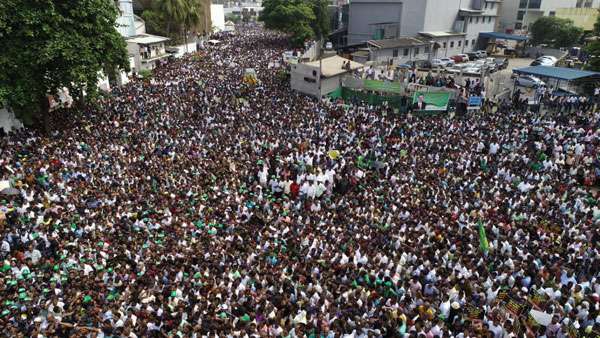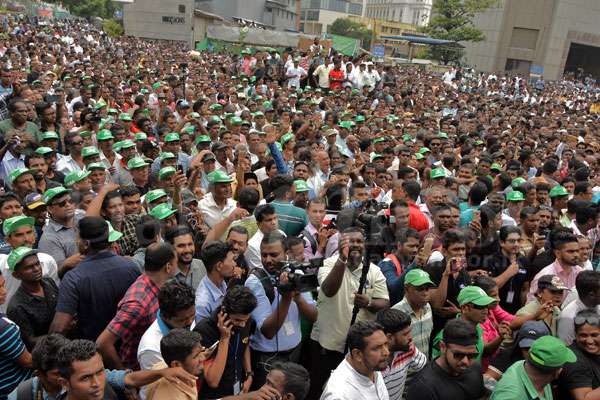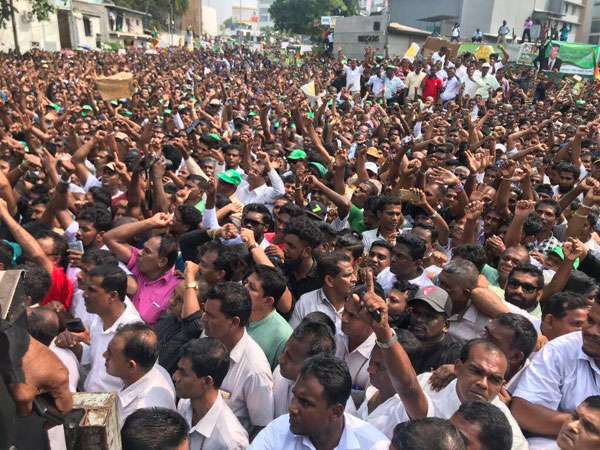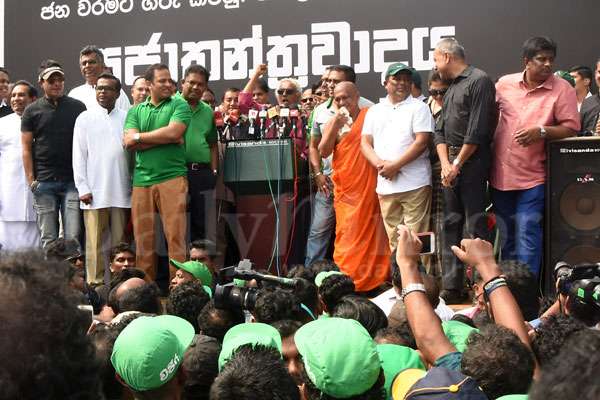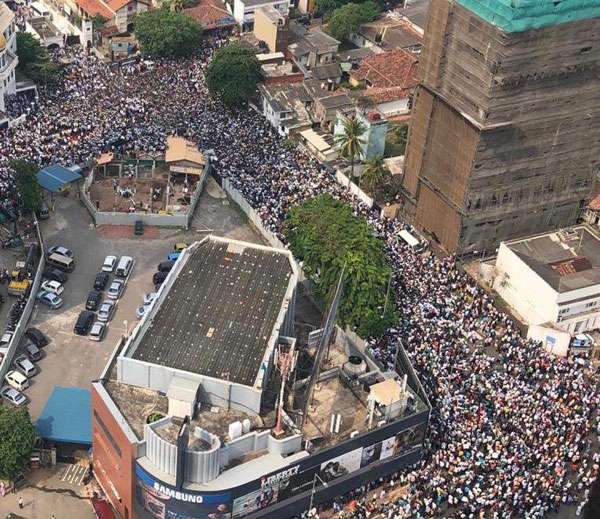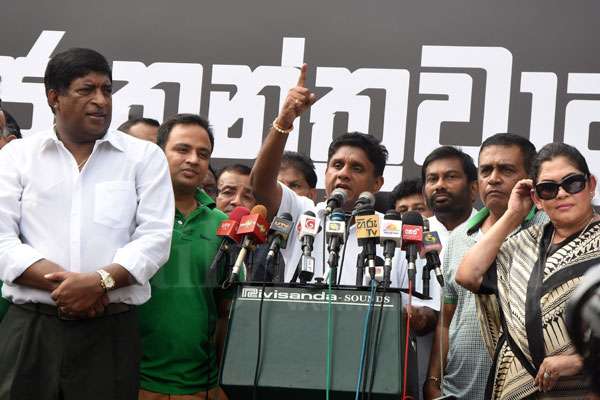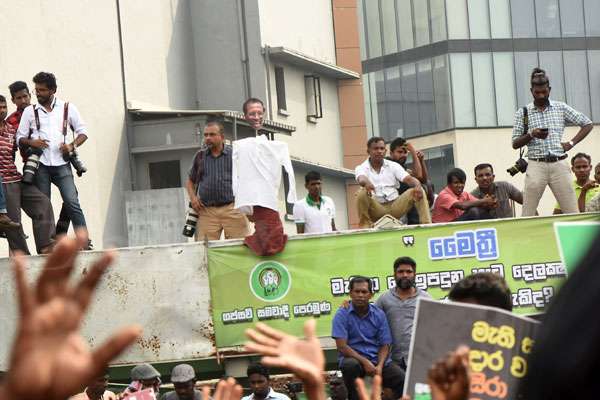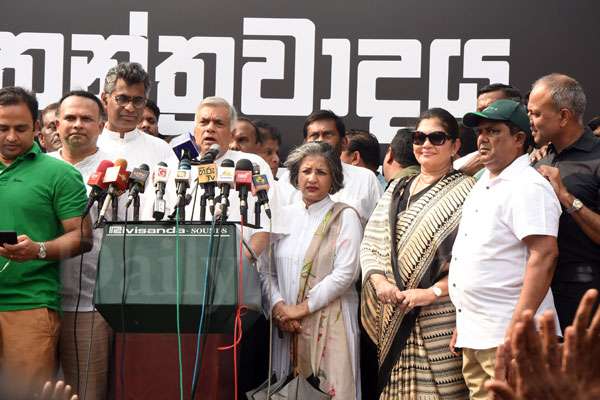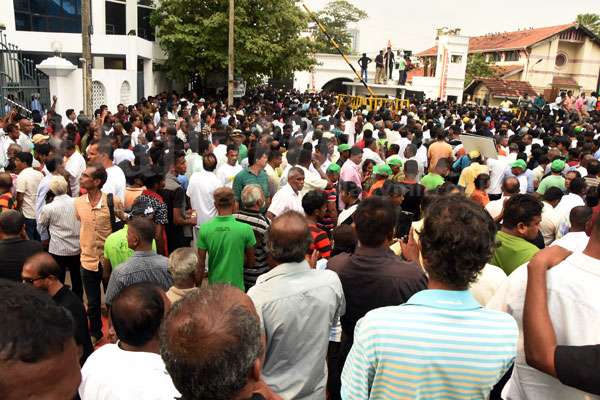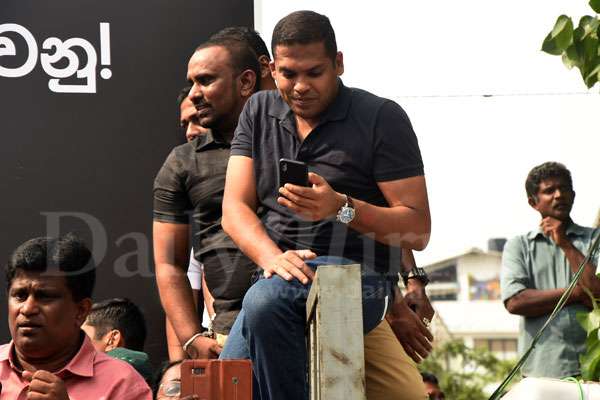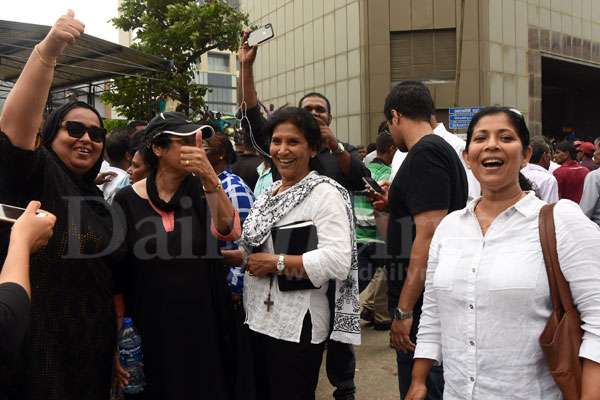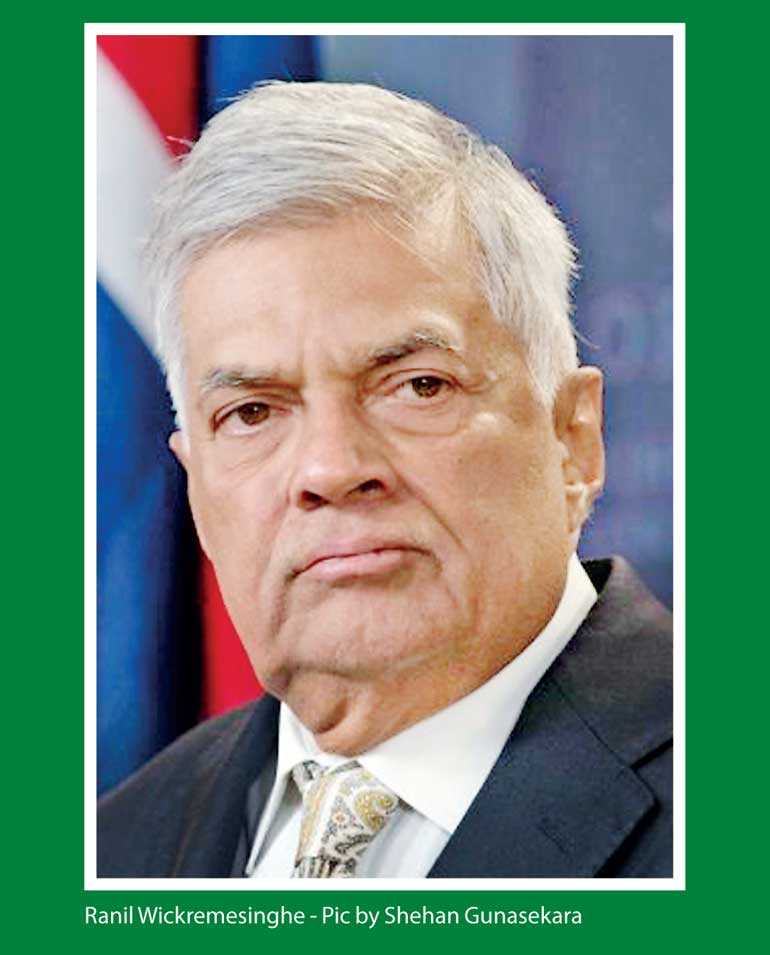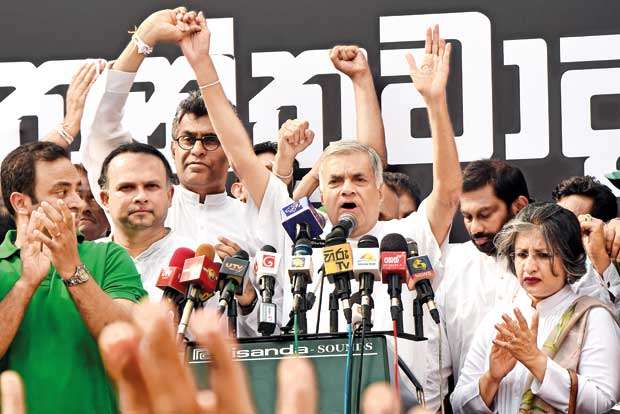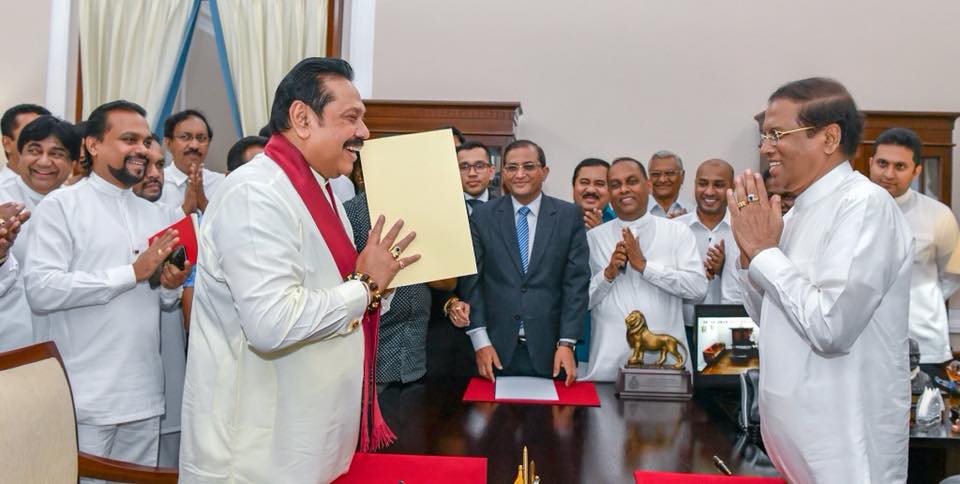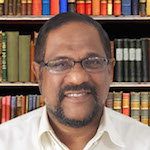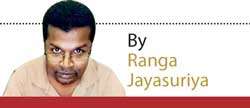 2018-10-30
2018-10-30

This is not the first time that the powers of the executive presidency that were deemed to be a source of stability were abused to serve the whims and fancies of the holder, effectively plunging the country into the depth of a political crisis. J.R.Jayawardene’s arrogance sowed seeds of a nation- wide political turmoil that overshadowed much of his second term, and Chandrika Kumaratunga’spalace coup in 2003 ingloriously ended her cohabitation government with the UNP. Last Friday, the incumbent of the office of presidency went an extra mile to wreak havoc. President Maithripala Sirisena scandalously sacked Prime Minister Ranil Wickremesinghe and appointed Mahinda Rajapaksa, his one- time boss, then the nemesis and now again the friend, in the post of Prime Minister. Constitutionality of his action is hotly debated and is open to interpretation. However, military-grade secrecy that shrouded the whole affair raises serious questions about basic civility and morality of his action and of the man himself. His subsequent prorogation of Parliament betrays sinister mechanization, which are gradually taking practical expressions as of now.
According to the Article 46 of the Constitution,‘the Prime Minister shall continue to hold office throughout the period during which the Cabinet of Ministers continues to function under the provisions of the Constitution unless he—
46. 2 (a) resigns his office by a writing under his hand addressed to the President; or
(b) ceases to be a Member of Parliament ‘ or
48. (2)‘Parliament rejects the Statement of Government Policy or the Appropriation Bill or passes a vote of no-confidence in the Government.’
Under such a condition, the President shall appoint a new Prime minister, who ‘in the President’s opinion, is most likely to command the confidence of Parliament’ (article 42 (4) and 48 (1) and the Minister of the Cabinet and Deputy Ministers .
The legal opinion that supports the removal of Mr. Wickremesinghe is the interpretation that the departure of UPFA from national government on Friday, effectively ceased the function of the Cabinet of Ministers. Nonetheless, the practical question is whether the exit of the UPFA caused the Prime Minister to lose the confidence in Parliament. That can only be tested in a vote in the House. Instead, President Sirisena, who on two previous occasions within this year tried (and failed) to remove the Prime Minister, used this opportunity to appoint MR, as the Prime Minister.
His action is contentious and polarizing at best, and undemocratic and unconstitutional at worst. He could still have mitigated the degenerative effects of the political crisis he himself caused, had he let Mr. Rajapaksa to prove that he commanded the most confidence in Parliament. He did not do that. Instead he prorogued Parliament. As a result, now there are two parallel governments.
If he genuinely believes his Prime Minister appointee commands the most confidence in Parliament, the question of prorogation does not arise. In truth, UPFA even with the support of the CWC could command the support of only 97 members in Parliament. That is a long way from securing a working majority of 113. In comparison, the UNF has 106 MPs. There is also a crucial block of 16 MPs of the TNA who are more inclined towards the UNP than the Rajapaksas. The JVP which has 6 MPs has decided to remain neutral. A few of the UNP MPs could well sell their vote to the highest bidder. M/s. Vadivel Suresh and Ananda Aluthgamage have expressed interest in pole vaulting, though the former had since changed his mind.
That is where the sinister logic of the prorogation comes to life. Prorogation is meant to buy time to secure a sufficient number of cross overs from the Opposition. Mahinda Rajapaksa has deep pockets and a chequred history of buying MPs. Any bribery commission worth its salt should investigate this insidious affair.
The three week period until the convening of the House is now being put into to good use to capture the state and consolidate the grip in state institutions, often through the use of thuggery. The national television, Rupavahini went off air during its forcible takeover by the UPFA supporters. Editors and independent journalists of Lake House were terrorized and chased away during the weekend.
Political violence that has been kept at bay for the last several years is raising its ugly head. Two men were killed on Sunday in a clash involving rival political groups. Rights activists, especially in the North are bracing for a new phase of state violence. Intimidation would further radicalize Tamils. Also a government that lacks constitutional legitimacy would find it hard to defend Sri Lanka in international fora.
In his address to the nation on Sunday, the President made a lame effort to justify the sacking of the Prime minister. His speech was a load of loaded words and personal attacks and a practical explanation of his self-serving ploy. Nor did he explain how Mr. Rajapaksa whom he accused of manifold corruption, atrocities, and previously spoke of likelihood of he himself ending under six feet, had he lost the presidential election, suddenly become an ideal companion.
Sri Lanka is in political turmoil due to the President’s selfish mechanization to secure a second term. He vouched in his inauguration speech not to seek another term and later changed his mind. He aspired to be the common candidate for yet another time. The UNP refused to accommodate him. Since then he began making overtures to the Rajapaksa acolytes in the Joint Opposition. The unsaid agreement behind his Friday ploy was that he would be the SLFP nominee for the presidential election supported by Mr. Rajapaksa, who in return gets the post of Prime Minister.
How this gamble will play out is to be seen. For it to succeed, his constitutional coup should go unchallenged in court, in Parliament and outside. Second, MR should stick to his side of the bargain. Most likely, the President would be taken for a nasty ride by the shrewd Rajapaksa/s.
Whether Mr. Rajapaksa commands the confidence in Parliament is untested. Numbers suggest he does not. This in other words makes him an imposter of the office of Prime Minister -- Just like his pick of a Chief Justice, Mohan Silva, whom he appointed after he sacked legitimate Chief Justice Shirani Bandaranaike.
International community has moral responsibility not to recognize his government unless or until , its majority in Parliament is proven in a vote. If that majority is achieved through extra-Parliamentary/ extra judicial means that would further erode his legitimacy. That the foreign envoys (except the Chinese ambassador who met both M/s.Wickremesinghe and Rajapaksa) have so far shunned Mr. Rajapaksa and President Sirisena betrays the reservation on the part of the international community. Irrespective of self -interested articulations of cave- minded patriotism by a few, the people of this country deserve the help of the civilized world, if their painstakingly achieved democratic reforms are to be defended.
The game plan of the Joint Opposition, of which a captive the President has become, is clear. It could consolidate its grip through the state capture and lavish inducement for Opposition MPs to crossover. If it fails to secure enough votes, the President may be persuaded to prorogue Parliament again. At the end, the Vote on Account that the JO plans to present could well be defeated in Parliament. This would prompt the President to dissolve Parliament, leading to snap elections.
However, JO members appointed as the ministers of Rajapaksa government would have recourse to hold on to their ministerial portfolios, thus enabling them to utilize the state machinery for electioneering. Both Sri Lanka’s main parties have a track record of abuse and misappropriation of public property during the elections.
Submitting an impeachment motion against the President would prevent him from dissolving Parliament. That would nonetheless further aggravate the political crisis since the UNP could not garner the two third majority needed for the impeachment of the president. Yet, that would tie the President’s hand.
There is,however, a silver line. Institutions that had been empowered under the 19th Amendment could prove that they could tame the absolutism of a self- serving presidency. RanilWickremesinghe, Opposition leader R. Sampanthan and JVP Leader Anura Kumara Dissanayake have requested the Speaker to reconvene Parliament. The Speaker should use the powers vested with his office and the doctrine of necessity to avert the further slide of the country into political chaos. That would enable the elected representatives of the people to resolve the current political crisis through a vote.
The Speaker should act now. Time is fast running out. If he waits too long, democracy in Sri Lanka would bleed to death.
Follow @RangaJayasuriya on Twitter






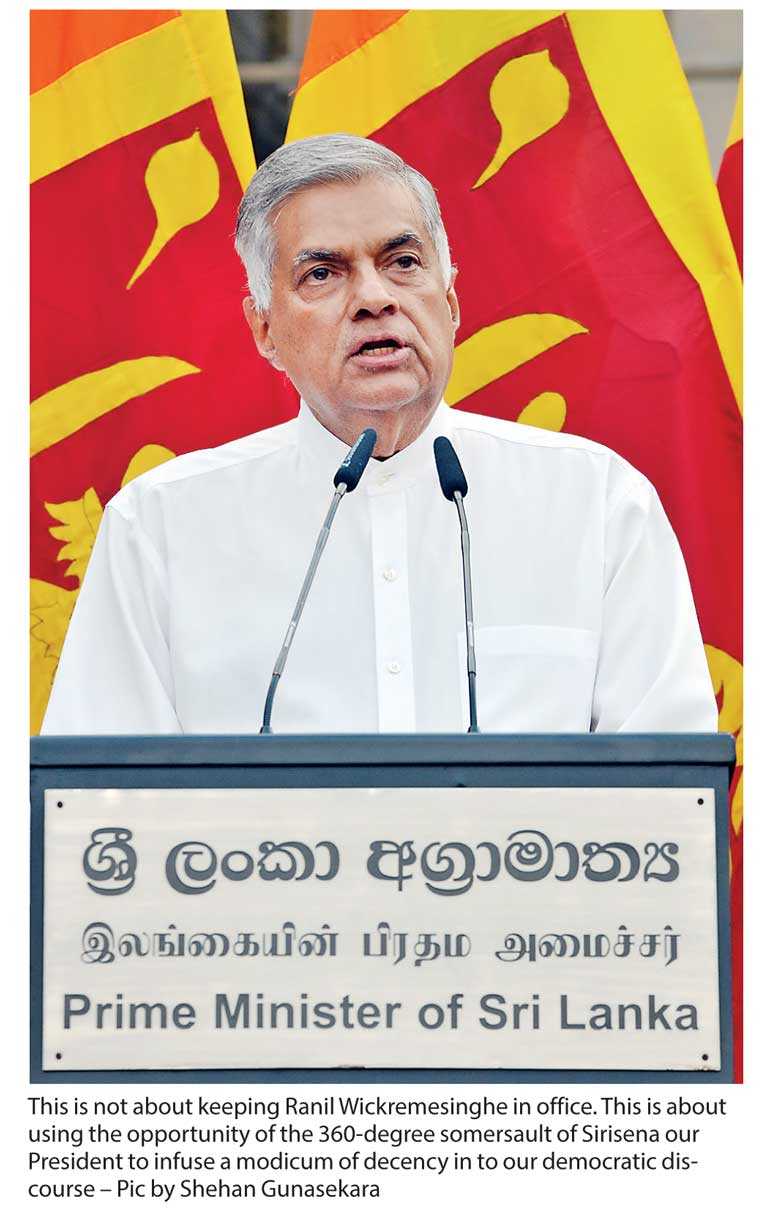


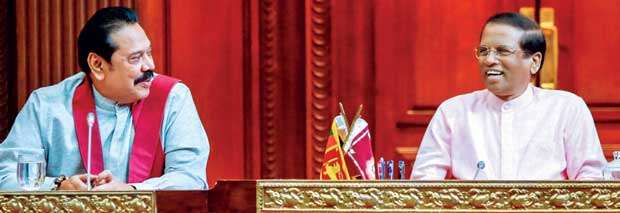




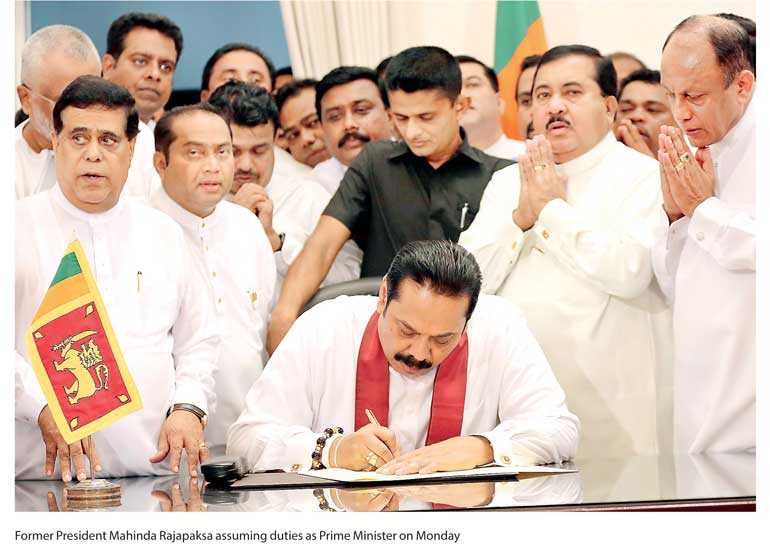 Please read with an open and objective mind. The Constitution of the Democratic Socialist Republic of Sri Lanka is not the property of politicians, professors, justices or lawyers. It is the property of the people of Sri Lanka and we the people have the right to read, understand and apply the Constitution without bias. Following is the order of events and relevant Constitutional articles by which the new Prime Minister
Please read with an open and objective mind. The Constitution of the Democratic Socialist Republic of Sri Lanka is not the property of politicians, professors, justices or lawyers. It is the property of the people of Sri Lanka and we the people have the right to read, understand and apply the Constitution without bias. Following is the order of events and relevant Constitutional articles by which the new Prime Minister
